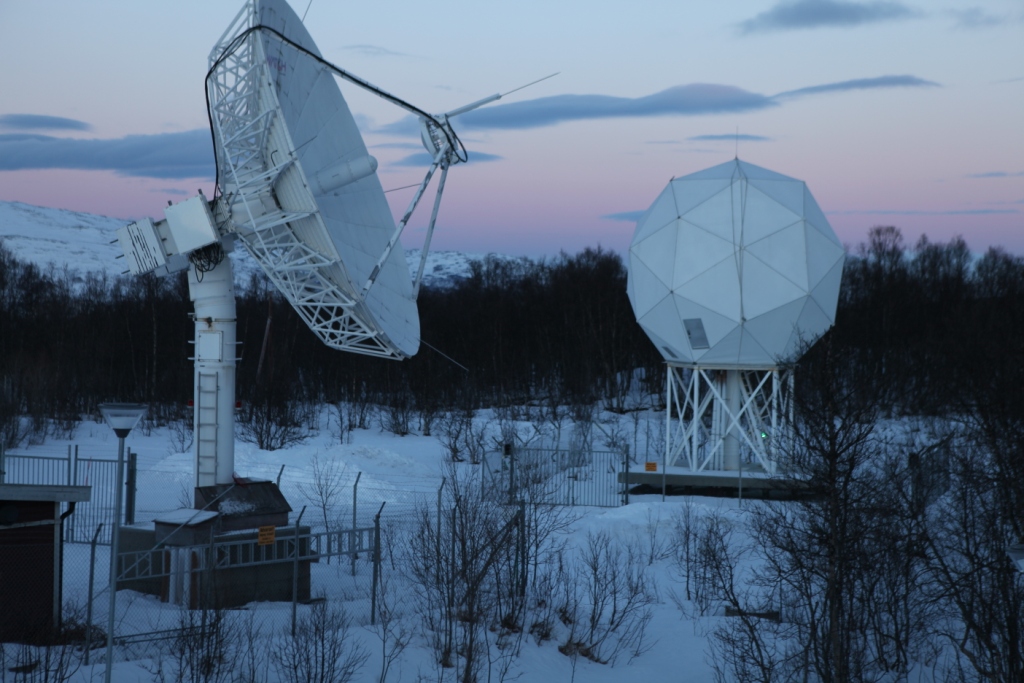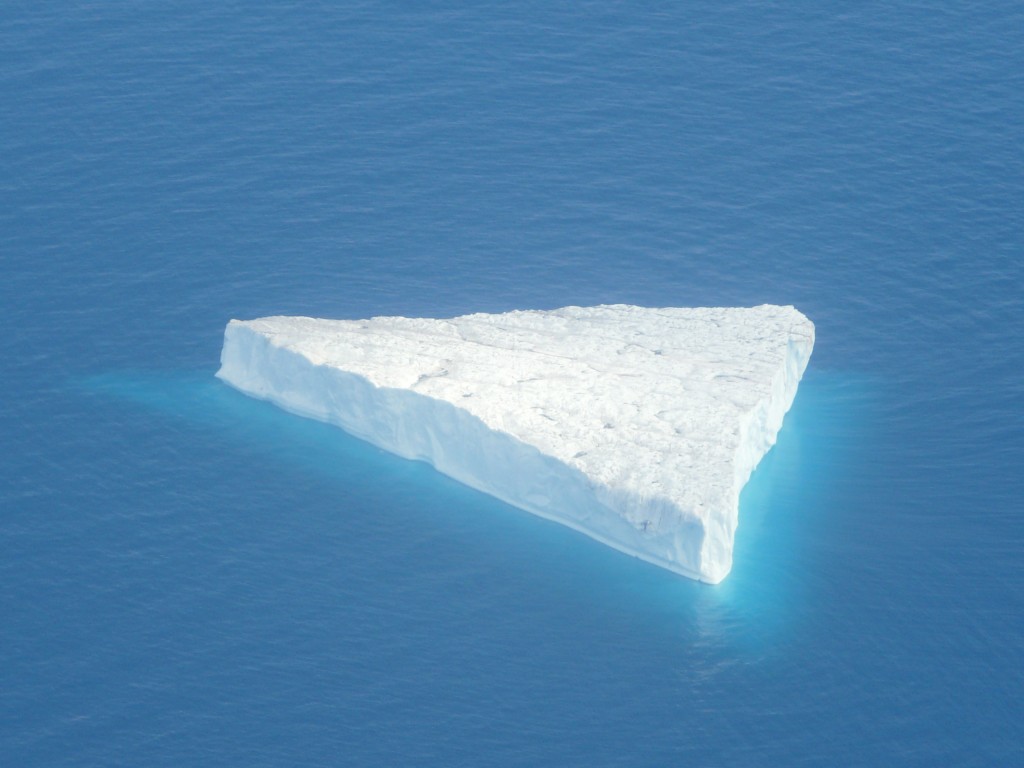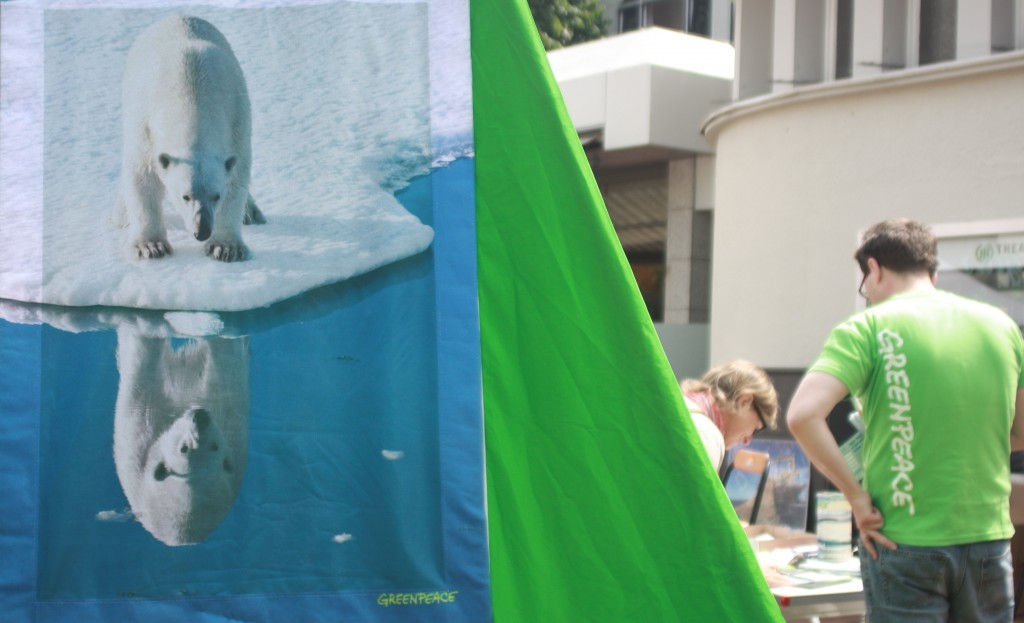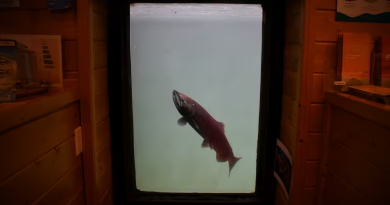Ice-Blog: Can environmentalists trump Trump’s climate plans?
 When it comes to the latest data on the state of the Arctic sea ice, the Greenland ice sheet or other key features of the cryosphere, the chances are NASA will have been involved in providing it.
When it comes to the latest data on the state of the Arctic sea ice, the Greenland ice sheet or other key features of the cryosphere, the chances are NASA will have been involved in providing it.
For those of us interested in protecting our icy regions against climate change, US President-elect Donald Trump’s plan to scrap NASA’s climate research and shift the funding to space exploration is alarming, to say the least.
Why the world needs NASA – not just for space

Two of my colleagues at DW talked to leading scientists about Why Trump scrapping NASA climate funding is bad news for our planet. Thomas Hollands from the German polar agency the Alfred Wegener Institute explains the essential role played by NASA’s network of satellites in providing data for climate researchers the world over.
“Scientists around the world depend on NASA for a variety of information – from measuring the state of the Earth’s atmosphere and the shape of its gravity field, to observations on glacier melting, sea ice formation, forest loss and urban growth”, the article says. It goes on to explain how important it is to have continuous measurements over time to be able to establish trends and changes.
Presumably, of course, if the Trump administration makes good on election promises to revive the US coal industry, there are those who would find it advantageous to get rid of any technology that can measure the extent of the impact of fossil fuel emissions on the world’s climate. A scenario to be avoided at all costs.
Fighting back

So I was interested to read a piece on the news agency AP this week headlined “Trump rollback of Obama climate agenda may prove challenging”. I hope “challenging” will turn out to be an understatement.
The story, by Michael Biesecker, says a President Trump would be in a strong position to dismantle some of President Obama’s efforts to reduce carbon emissions:
“But experts say delivering on campaign pledges to abolish the Environmental Protection Agency and bring back tens of thousands of long-gone coal mining jobs will likely prove far more difficult for the new president”, Biesecker writes.
Environmental groups are gearing up to defend Obama’s environmental legacy in court. Sierra Club Executive Director Michal Brune is quoted as saying “we intend challenging every single attempt to roll back regulations on air, water and climate”, and that his group is already hiring additional lawyers. It does not surprise me that fundraising for environmental causes has also spiked since Donald Trump’s victory.
The question is just how much the President is able to do and what tools are available to opponents to stop him.
The powers of the President

Many legal experts believe Mr. Trump would be able to cancel the Paris Climate Treaty, as he threatened to do when he was campaigning (although his stance has shifted slightly in the meantime). It is not a treaty and was not approved by the (Republican-controlled) Senate. The future president could also order the EPA – where the transition team is being led by a climate skeptic leading a think-tank funded by the fossil fuel industry – not to take the action required to meet the US commitment to cut emissions.
It seems, though, that it is not that easy to dismantle EPA regulations which have already been finalized and implemented. Jody Freeman, director of the environmental law program at Harvard Law School, is quoted as saying “the agency has already built up a very strong record to support those rules”. Ultimately, “it can be very hard to do an about-face.”
From the legal point of view, the President cannot get rid of the EPA without congressional approval – which could be prevented by filibustering. (He could, of course, slash its budget).
When it comes to abolishing NASA’S climate research programme, Mr Trump will also find himself facing some tricky hurdles.
“NASA’s study of earth science is currently mandated by federal law, which means voiding the program would require congressional action”, AP writes. That too means Democrats could block things using a filibuster.
What happened to common sense?
Ideally, common sense and concern for the wellbeing of people and the health of the planet we live on should ensure that Obama’s environmental and climate policies are not turned around. The advances in renewable energy also mean it makes economic sense to shift away from fossil fuels to wind and solar. In fact, it seems the courts will have to tackle the ins- and outs in lengthy and costly investigations.
This past week, in the USA, a group of American youths officially won the right to sue the government of the United States – the world’s second-largest greenhouse gas emitter after China – for failing to curb climate change. The Oregon district court upheld the main argument, that “the government has known for more than 50 years that the carbon dioxide produced by burning fossil fuels was destabilizing the climate system in a way that would significantly endanger plaintiffs, with the damage persisting for millennia.” Yet, the court argues, the government has failed to take action, making it responsible for some of the harm caused by climate change.

Here in Germany, there is also a court case in process, which could set a precedent. A farmer and mountain guide in the Peruvian Andes is suing the German energy giant RWE. Saúl Lliuya from Huaraz says his home is at risk of flooding, as it lies beneath a melting glacier in the Andes mountains. He argues that the company’s coal power emissions contribute to climate change, and so RWE should have to pay a share of measures to protect his home. But RWE says there is no direct link connecting CO2 emissions to the danger of flooding. Lliuya is being supported by the environmental organization Germanwatch. In my Living Planet radio show this week I broadcast an interview with the organisation’s policy director, Christoph Bals.
The plaintiff’s argumentation is that because RWE has produced 0.5 percent of all global emissions since the industrial revolution, the company should at least pay 0.5 percent of the measures to protect the farmer and his home town from flooding as the glacier above it continues to melt. Bals sees it as a major achievement that the case is being dealt with in the German court as one that could set a precedent. Even if the lawyers are not able to prove a direct link and win the case, he says getting to this stage is a demonstration that it is possible to go to court against companies like RWE on climate grounds.
“From now on this is one of the options on the table. I am sure that as soon as we see in the world that we will not stay below two degrees or 1.5 as said in the Paris Agreement, those cases will be much more likely – and it will be much more likely also that the individual court will decide you are right. So for the future this would be one major option if we don’t get a political solution”.
There has to be some food for thought in there for Mr. Trump and his advisors. Interesting times, indeed. And environment and climate advocates have their own trump cards in their hands.

Related stories from around the North:
Canada: Warmer Arctic Ocean temperatures delay sea ice formation, Radio Canada International
Finland: Puzzling migration fluke brings thousands of Siberian birds to Finland, Yle News
Greenland: New model predicts flow of Greenland’s glaciers, Alaska Dispatch News
Norway: New report sees Arctic melt on course to tip global climate, Deutsche Welle’s Iceblogger
Russia: Ancient virus found in Arctic permafrost, Alaska Dispatch News
Sweden: Sweden’s climate minister worried about Trump’s stance on global warming, Radio Sweden
United States: Alaska: Barrow’s record-warm October continues pattern associated with low sea ice, Alaska Dispatch News



